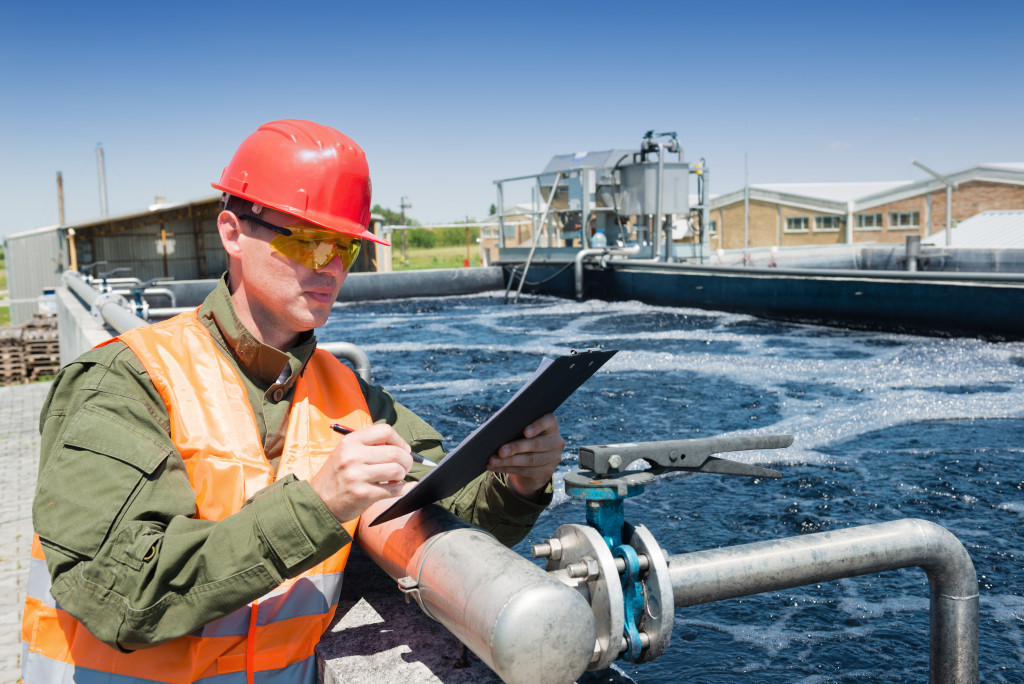Hydrocarbons are essential to the modern world. They play a vital role in energy production and many other industrial processes, such as the production of plastics.
However, one major drawback is that they contribute to the greenhouse effect and global warming. How can hydrocarbon-reliant businesses mitigate these?
What Are Hydrocarbons?
Hydrocarbons are a large and diverse group of molecules that contain only hydrogen and carbon atoms. They are found in natural gas, crude oil, and petroleum products. Some common examples are methane, ethane, propane, and butane.
Extracting hydrocarbons from natural gas, crude oil, and petroleum products is an important part of the petrochemical industry. Hydrocarbons are separated from these substances by distillation or cracking.
Distillation is a process in which hydrocarbons are heated to their boiling points. Low-boiling hydrocarbons, such as gasoline and kerosene, are recovered by condensation. Cracking is the opposite of distillation. It involves heating high-boiling hydrocarbons until they break apart into low-boiling ones.
Petroleum fuels are the most common use for hydrocarbons. Gasoline, diesel, and jet fuel are all highly refined forms of petroleum. All petrochemicals have a “cracking value,” which is the amount of energy it releases during cracking to form a specific chemical or plastic.
Uses of Hydrocarbons
Most of the chemicals and plastics produced from these hydrocarbons are made from a small number of molecules containing between six and 12 carbon atoms. There are many uses for these molecules, such as polyethylene, polypropylene, and synthetic rubber.
Hydrocarbons are also used to make a number of chemicals that have a wide variety of applications. Complex hydrocarbons may be made into solvents, detergents, lubricants, adhesives, surface coatings, and waxes for use in the food and pharmaceutical industries.
The Environmental Impacts of Hydrocarbon Extraction
The environmental impact of extracting hydrocarbons from natural gas, crude oil, and petroleum products is significant. The process of extraction requires a lot of energy, which is often derived from fossil fuels. This results in the release of greenhouse gases, such as carbon dioxide and methane, into the atmosphere.
Extracting hydrocarbons also produces a lot of waste products, such as water and solids. These waste products can contaminate water supplies and soil. They can also cause air pollution when they are burned.
If disposed of improperly, hydrocarbon waste products can lead to health problems in people and wildlife. For example, benzene is a carcinogen associated with leukemia and other blood disorders.
Hydrocarbons can also be harmful if they are inhaled or come into contact with the skin. Some hydrocarbons are toxic even at very low concentrations. Hydrocarbons are both combustible and flammable, which makes storing them dangerous.
Opting for Cleaner Solutions
There are a number of ways to reduce the environmental impact of using hydrocarbons:
1. Remediation Processing Centers
There are a number of mobile hydrocarbon processing centers that can be brought to the site. These mobile units have capabilities for crude oil extraction, refining, and recycling capabilities. This provides an on-site solution for hydrocarbon waste products.
The hydrocarbons produced by this process can be upcycled using existing infrastructure throughout the petrochemical industry. The extract can also be used as a precursor for many chemicals.
Using remediation processing centers also significantly reduces the risk of environmental contamination. In the traditional method, usually, those who excavate contaminated soil end up dumping the material into other places that were supposed to be clean. Sometimes they become part of water run-off, ending in bodies of water.
2. Cavitation Hydrocarbon Upgrader (CHU)
Write an article about how Cavitation Hydrocarbon Upgrader (CHU) is a great way to extract and reuse hydrocarbon chains. In this process, special techniques such as elongating the carbon chains or increasing their API gravity and viscosity can physically and chemically alter the recovered materials.
By upcycling these materials, companies do not have to rely on generating more energy using fossil fuel. The process leaves behind no waste and is extremely environmentally friendly. Even better, these transformations can create new opportunities to create income.
3. Nano-Sponge Technology
The nano-sponge technology helps turn the recovered hydrocarbons into a more useful product, such as petroleum or gasoline.
This technology uses a specialized sponge to absorb hydrocarbons. When microwaves are introduced, it causes the sponge to heat up and “refine” the crude by breaking the carbon chains.
4. Wastewater Management

In almost all cases, when the hydrocarbons are being extracted from the ground, wastewater is being produced. Several methods have been developed to prevent untreated wastewater from contaminating bodies of water and soil.
One method separates solids from liquids. Another highly effective option is to use a bio-digester to transform the waste products into biogas.
Hydrocarbons will continue to play a major role in people’s lives and businesses, but collecting them has to be refined and even replaced to make the process significantly less harmful to the environment.



